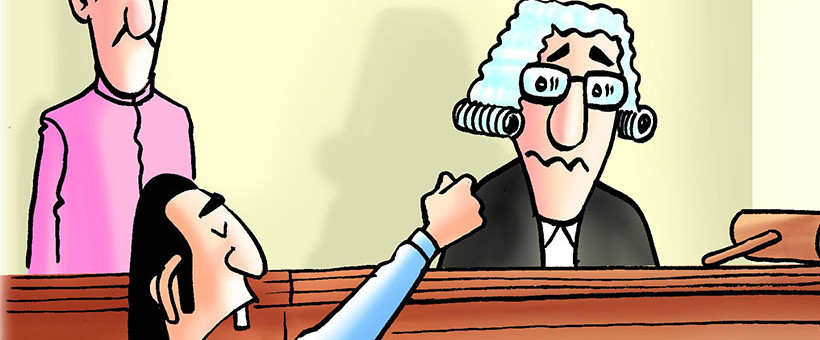
Is our consumer courts are consumer friendly?
- On June 7, 2015
The consumer protection act itself says that there is no need for an advocate’s help to contest in the Forums. But in reality, it is bit hard to digest! Consider the cases approaching before the District forums, most among those complaints contain serious complaints/issues against companies. Thus, the real players of the game are Advocates and their tricks. While contesting in Courts, a consumer must aware about some procedures and practices to enable his complaint clear and cunning. .
Relevant Evidence: Most of the complaints might leave to waste bin, if consumer failed to produce adequate proof of the complaint. Usually an aggrieved consumer rush to court without proper evidence and proof of normal course of action taken before approaching the Forum. So, when you plan to move before Consumer Forum, collect all possible evidences and study the law related to the said complaint. It is very important to learn the law which is in a line with your complaint. It will help a consumer to understand, at what circumstances; a company must be obliged to responsible, also try to connect your complaint with those clause(s).
Make your complaint orderly: it is the next task for a consumer, while preparing a complaint. The person(s) who sitting as president in the forum, doesn’t know your problem, if the complaint is not orderly maintained, it might back fire to your stand and help opposite parties to skip from their responsibility.
File your complaint with copy of evidence: At the time of filing, complainant must attach adequate proof and show the attachments in your complaint in relevant sections.
Do not absent in hearings: A complainant should not absent on the dates of hearings. May be, opposite parties won’t attend the hearings, such cases after three consecutive absences from hearings, you can ask the court to put them as Ex-parte. Usually, if the case is serious and big compensation, company must try to avoid quick decision from the court. They try to extend the case as much as possible, they knows a consumer cannot run after a case for a long time. In that case, if you appoint a legal counsel, it is our duty to assess the performance of the legal counsel in the court and verify the documents are submitted timely.
Review petition: If the case is not heard thoroughly or opposite parties are Ex-parte, they might move before the State Forum to review the case again and earn stay order, to overcome this problem, if consumer revealed that, opposite parties may move before the State Commission, file an objection application to block awarding stay order. For State Commission it is better to appoint a legal counsel rather moving alone. As our legal system, higher courts may consider more seriousness/importance to legal counsel’s appearance rather consumer presence.
Appeal: Any party can move for appeal to higher courts, if they felt dissatisfaction of lower courts order. The hardship is, it would be a time taken process and participants should spend more.
Change court: If a consumer believes that he won’t get fair/natural justice, he can file application to higher court to transfer the proceedings to another Forum/Commission.
Execution petition: After the verdict, if opposite party failed to carry out the order within 30 days, the complainant can file an execution petition to avail justice.
The basic issue of considering self-appearance in consumer court is; it will grab your time, money and direction. Companies have their own legal team to manage these cases, so they don’t have any problem with time and money. Moreover they lobby opposite party advocates, judiciary as well. So a consumer must aware the reality and hardship they going to face while moving for “justice”.
The better practice is your complaint
-
Must have carry clear, orderly arranged, adequate proof attached complaints.
-
Study relevant law, and connect your complaint with law based obligations should follow by the company/opposite party.
-
Stay strong and make opposite party to feel, you will go at the end of the road.
-
Publish case details in the social media, public forums and newspapers.
-
Try to connect with people who experienced similar issues, and articulate the same in the court during detailed examination.



